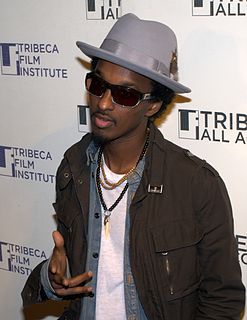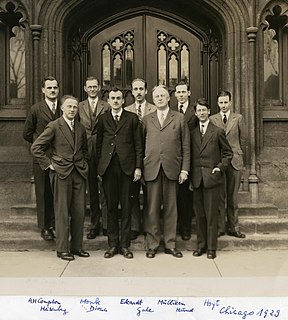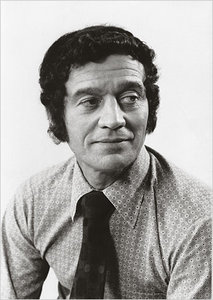A Quote by Richard Russo
Stories worked much the same way . . . A false note at the beginning was much more costly than one nearer the end because early errors were part of the foundation.
Related Quotes
Progress is the exploration of our own error. Evolution is a consolidation of what have always begun as errors. And errors are of two kinds: errors that turn out to be true and errors that turn out to be false (which are most of them). But they both have the same character of being an imaginative speculation. I say all this because I want very much to talk about the human side of discovery and progress, and it seems to me terribly important to say this in an age in which most non-scientists are feeling a kind of loss of nerve.
I heard about Bhagavad Gita very early in my childhood, from the age of five onwards. It was one of the earliest things I started to read when I started to read. And it was very much a part of my consciousness. In the beginning, I saw the "Bhagavad Gita" as a text that was very classical, much like the "Iliad" and the "Odyssey" - a mythical saga that showed the eternal conflict between good and evil. But much later, as I grew up, I realized that it was much more than that.
In every age states of varying size and constitution and at every level of development have found naval warfare to be one of their most formidable and expensive tasks. Ships have always been large, costly and complicated, and warships much more complicated and costly than any others. Scholars are nowadays inclined to emphasize the power, wealth and sophistication of the Anglo-Saxon kingdoms, and there is not more striking illustration of this than the advanced and elaborate administrative structures of the early English navy.
But this same process of the old teaching the young can also cause errors and false conclusions to accumulate with the passage of time. One should therefore study ancient writings, not so much in the hope of finding lost wisdom as in the hope of locating the origin of errors that have been, and still are, accepted truths.
As a song writer when I first was aware of the Beatles and started, you couldn't avoid hearing it, not that I, I tried. And what, what struck me was not so much the songs or the part of the songs that, that seemed unique to me were, was more melodic at the beginning than, than the lyrics because they were still talking about, you know, I love you, I don't love you and I need you or don't need you.






































